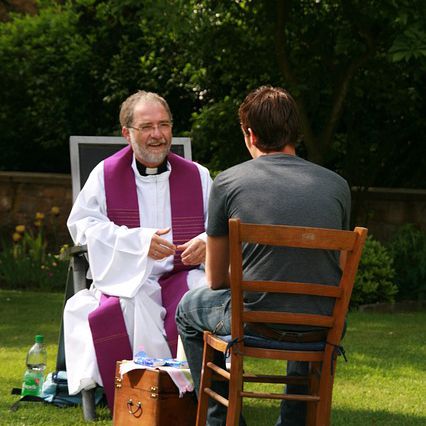
If you think about it, what is the point of baptism if I don’t need to pour water over you but simply say you are baptized over the phone? The very tangible experience of the sign of water is integral to the efficacy of the spiritual power of baptism, both combined to make this a real gift of grace. This is the same with confirmation, holy orders and anointing with the sign of the various oils, as well as the Eucharist with the reception of Communion. Similarly, a man and a woman cannot say to each other they are married to each other over the phone, when there is no way for them to be fully present to each other, nor is there any possibility for them to become one flesh.
Although in reconciliation, there is no water, no oil, no holding hands, but in the very act of the priestly absolution, there is the real sign of being in the presence of another, the penitent fully in front of the redeemer stood in by the priest, reaching out his hands over you to pronounce the absolution of the bond of sin. This is a personal encounter that we must enter in person fully, and cannot be received virtually.All sacraments (baptism, confirmation, Eucharist, reconciliation, marriage, holy orders and anointing of the sick) are signs representing the presence of Christ ministering to us in our various needs. In the very act of the sacrament, Christ is made present among us in both a spiritual way as well as in a physical way to effect a real transformation within us. As a result, all sacraments can only be administered in person, that is, when we too are fully present to Christ in the sacrament.


